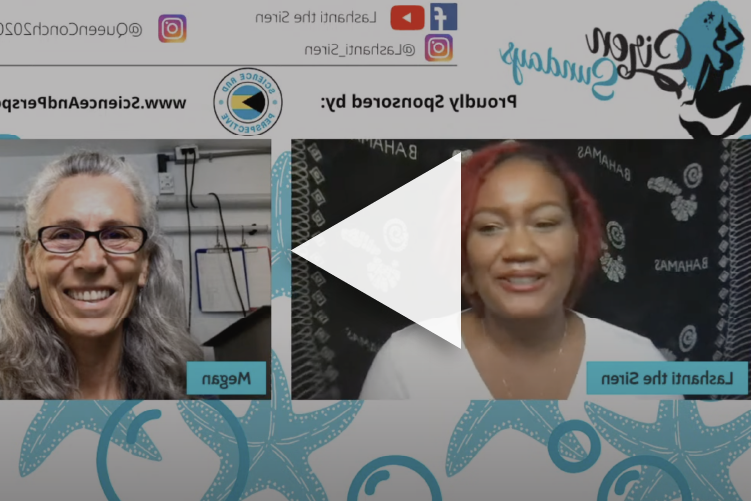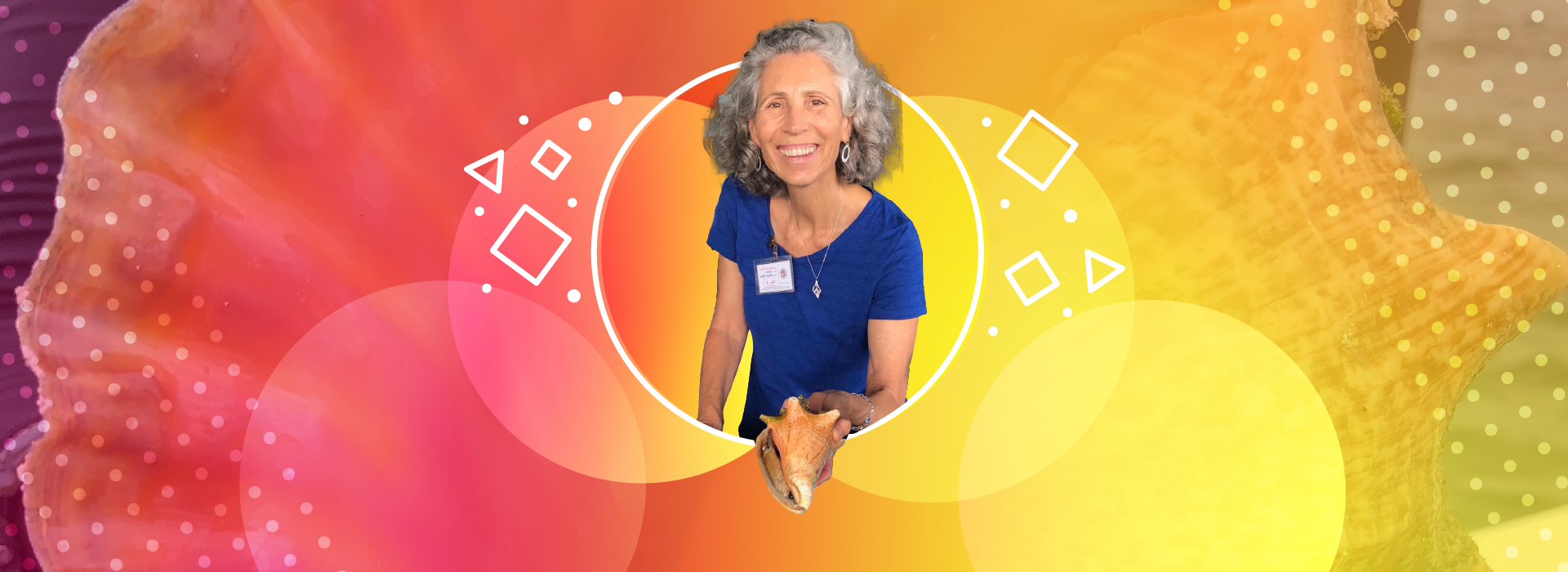11/11/2021
Inventor Spotlight: Sea Creations
For more than 40 years, Megan Davis, Ph.D., research professor in the FAU Harbor Branch Oceanographic Institute, has dedicated her life to conserve and restore the Queen Conch — a large, edible pink snail that lives in the Caribbean Sea and surrounding waters.
This sea snail conch has been threatened due to habitat degradation and overharvesting for its meat as well as its pink-lipped shell, valued by collectors. Yet, it plays a valuable role in the ecosystem as well as to the culture of the Caribbean, The Bahamas and Florida. So to save the conch, Davis — also a member of the National Academy of Inventors— has developed aquaculture techniques to raise and restore them to the wild.
Most recently, she co-patented a method for producing cultured pearls in a conch. The pearls produced by conch are rare but very popular, she said.
Her patent aims to protect conch during the process of creating pearls. The method she and her co-inventor created utilizes a relaxant that makes it possible to make an incision in the conch for seeding to produce a cultured pearl. After a period of time, a cultured pearl can be extracted.
“This is truly an environmentally-friendly method because the conch does not need to be sacrificed in order to extract the pearls and multiple pearls can be generated from each conch, thus increasing the total number that can be harvested overtime,” Davis said.
Here is more information about Davis, in her own words:
Q: How did you first become interested in research?
A. Sailing in The Bahamas with my family as a teenager I was introduced to the queen conch by the local fishers. I knew that this was the species that I would devote my career to. During my undergraduate studies, I earned my degree in aquaculture and environmental science at the Florida Institute of Technology (FIT) and through summer internships, I continued to learn about aquaculture and the queen conch. Later I earned my master’s degree and my doctorate at FIT to continue queen conch research which includes designing and operating multiple conch hatcheries throughout the years.
Q: What makes you most excited about research?
A. I enjoy being able to develop and implement queen conch aquaculture and conservation partnership projects that are community-based in the Caribbean region. I love to teach and take project ideas from concept to reality with a team approach. I’m also passionate about healthy, sustainable seafood and sea vegetable choices and enjoy sharing information through culinary demonstrations.
Q: Tell me about your most interesting research accomplishment?
A. Early in my career, right after I graduated with my bachelor’s degree, I moved to the Turks and Caicos Islands for 10 years to be a conch farmer. After working in an experimental queen conch hatchery for a couple of years, I then became co-founder and chief scientist of the world’s only production-scale conch farm. I was instrumental in the development and operation of large-scale techniques to culture the queen conch.
Another exciting research accomplishment working with the queen conch happened in the mid 2000’s with my co-inventor. We discovered a reliable technique to produce the highly sought-after queen conch pearl. The pearls in the wild are only found 1 in every 10,000 conch. Also, one fun fact I should mention is to pronounce the word conch you actually pronounce it as konk.
Q: What new developments and innovations can we expect to see in your research in the next 5 years?
A. Additional queen conch aquaculture farms in the Caribbean operated by fishers and community residents. In addition, the research will include incorporation of cultured conch pearl technology at some of these farms.
Q: Discuss a positive experience with the Office of Technology Development.
A. Working with Dana Vouglitois, the assistant director in the office of technology development is really a pleasure. She helped me file my conch pearl patent and walk me through any questions I had. We also continue discussions on how to build sponsored research or a licensee with this technology. She is a great resource for patenting and marketing your projects.
Q: What are interesting facts that people at FAU may not know about you?
A. I was born in Australia. I love to eat seaweed.
If you would like more information, please contact us at dorcommunications@e21system.com.
Siren Sundays
Siren Sundays (Season 4) Episode 6: Queen Conch Aquaculture with Dr. Megan Davis

Megan Davis, Ph.D., research professor at FAU Harbor Branch aquaculture and stock enhancement sits down to engage in conversation with marine conservationist and science communicator, Lashanti Jupp. Tune in to this episode of "Siren Sunday" as they discuss Queen conch aquaculture and action toward replenishing the population!
